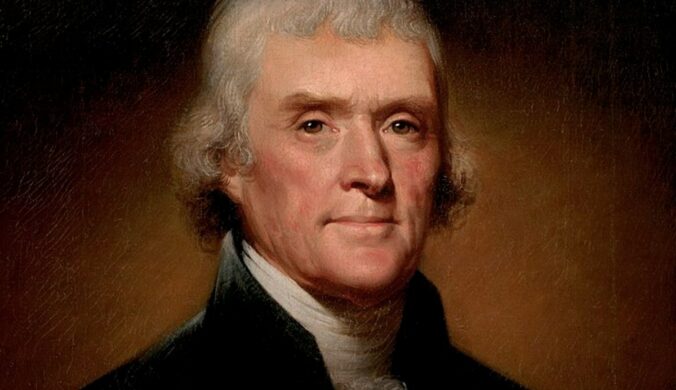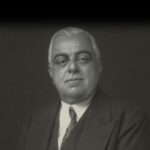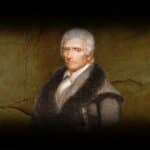James Knox Polk, born November 2, 1795, was an American politician. Polk is best known as the eleventh U.S. president. His journey to the office of POTUS began with representing Tennessee in the House of Representatives as a member. Polk was a democrat who worked hard to extend the U.S. territory by provoking a war with Mexico, which caused their cession of the American Southwest. He also reduced tariff rates and established an independent treasury system for America. The stain on his presidency is that he used slaves at the White House and even secretly purchased enslaved people
Fast Facts
Full Name:
James Knox Polk
Nickname:
Young Hickory
Birth date:
November 2, 1795
Death date:
June 15, 1849 (age 53)
Zodiac Sign:
Scorpio
Height:
5' 9.6"
Net Worth:
$1.5 million
Background
James Knox Polk was an American politician known for several good deeds. He was born on November 2, 1795, and his birthplace was Pineville, North Carolina. His parents were farmers, and he was the first of 10 children. Polk was a Scorpio and of Scottish and Irish descent. Life in a frontier society influenced Polk’s health as a child. He had urinary stones removed by Dr. Ephraim McDowell, who may have left him impotent or sterile. Polk enrolled in a Presbyterian academy in 1813. He also went to Bradley Academy in Tennessee, and was a promising student. Polk was admitted to the University of North Carolina at Chapel Hill in 1816. Here, he was the debate team president and learned the art of public speaking. He graduated with honors in 1818. Polk mentored under Felix Grundy after graduation and was elected a Tennessee State Senate clerk in 1819.
Polk studied law under Grundy and was admitted to the Tennessee bar in 1820. In 1824, he declared his candidacy for 1825’s House of Representatives Election. Despite being called ‘too young’ for the seat, Polk won the election with 3,669 votes and assumed his seat in Congress. He was re-elected in 1827. After five consecutive terms, Polk became the chairman of Ways and Means in the House of Representatives in 1833. The following year, he ran for Speaker of the House of Representatives and assumed the role despite losing the election. As a speaker, Polk enforced the ‘gag rule,’ which prohibited the House of Representatives from accepting or debating citizen petitions regarding slavery. This enraged John Quincy Adams, who was an abolitionist by then. Polk was re-elected as a speaker in 1837, after which he ran for Tennessee state governor in 1839. In the elections, Polk defeated Newton Cannon and won back Tennessee for the Democrats in August 1839.
As Tennessee state governor, Polk moved to regulate state banks and implement state internal improvements and education improvements. However, all three projects failed to win legislative approval. He lost re-election in August 1841 and sought to become Vice President, as the office would position him to take the presidency. He was nominated for the presidency in 1844 when no presidential candidate could secure the two-thirds majority. He won the election by 49.5%, defeating Henry Clay. Polk served as POTUS for a single term and left the office in 1849. He died three months after leaving office. He was baptized into the Methodist Church on his sickbed, and his final resting place is the Tennessee State Capitol. He was survived by his wife, Sarah Childress, whom he married in 1824. The couple had no children.
Career timeline
Polk declares his candidacy for the following year’s House of Representatives election from Tennessee’s sixth congressional district.
Polk gets a second term in the House of Representatives.
Polk becomes the chairman of the Committee of Ways and Means after his fifth consecutive term in the House of Representatives.
Polk runs for governor of Tennessee and defeats his opponent, Newton Cannon.
Polk is the Democratic Party’s presidential candidate and wins the 1845 presidential election.
Why We Love James K. Polk
He gave his life for public service
Polk had been a public servant since his late 20s. His health challenges were greatly influenced by the stressors of public office.
He was a great president
As a president, Polk achieved a lot of the items in his manifesto. He served tirelessly.
He loved his wife
Despite Polk's impotence, his wife supported him and significantly influenced his political successes. He was awestruck by her.
5 Surprising Facts
He was born in a log cabin
Polk was born in a Pineville log cabin.
His father was a slaveholder
Polk’s father was a slaveholder and a farmer.
He wasn’t baptized
Although his mother was a devout Presbyterian, Polk’s father was a deist who refused to declare his beliefs in Christianity, forcing the priest to refuse to baptize young Polk.
His first case was defending his father
After he got admitted to the Tennessee bar, Polk’s first case was defending his father against a public fighting charge, for which he secured a $1 fine.
He owned many slaves
Polk owned and inherited many slaves and left 53 enslaved people to his wife in his will.
James K. Polk FAQs
What were James K. Polk’s last words?
Polk professed his love for his wife, Sarah, before he died, saying, “I love you, Sarah. For all eternity, I love you.”
Why was James K. Polk a one-term president?
Polk’s decision to stay in office for a term fulfilled a campaign pledge he made in 1844.
Why was James K. Polk important?
During his presidential term, through a treaty with England and a war with Mexico, he oversaw the acquisition of more than a million square miles of land, the most significant territorial expansion in American history.
James K. Polk’s birthday dates
| Year | Date | Day |
|---|---|---|
| 2024 | November 2 | Saturday |
| 2025 | November 2 | Sunday |
| 2026 | November 2 | Monday |
| 2027 | November 2 | Tuesday |
| 2028 | November 2 | Thursday |





























